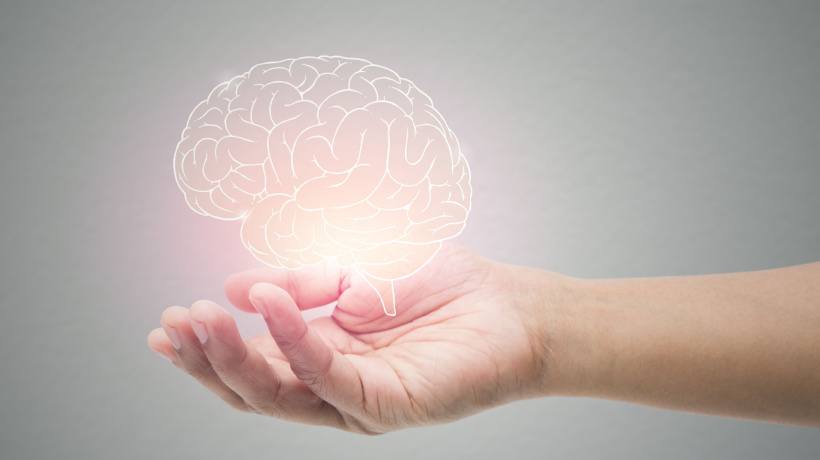Dedicated Mental Health Services Designed for Complete Care
Wiki Article
Comprehensive Inpatient Mental Health And Wellness Providers for Effective Therapy
Inpatient mental health and wellness solutions represent an important component of the healthcare system, offering a extensive and organized environment for people experiencing serious psychological distress. Discovering the subtleties of this continuum reveals considerable implications for both private healing and broader mental health outcomes.Recognizing Inpatient Mental Wellness Services
Inpatient psychological health and wellness services give critical support for people experiencing extreme emotional distress that can not be handled successfully in an outpatient setting. These solutions are developed to offer an intensive level of treatment in an organized environment, frequently within a healthcare facility or specialized facility. People admitted to inpatient programs generally present severe signs and symptoms, such as suicidal ideation, serious depression, or psychosis, demanding round-the-clock surveillance and intervention.The admission procedure usually entails a thorough evaluation by mental wellness experts, that assess the person's psychological state, history, and prompt needs. When confessed, clients involve in a variety of restorative techniques customized to their specific demands, consisting of drug management, private treatment, and team sessions. This holistic strategy intends to stabilize the patient's condition, promote security, and foster coping abilities.
Inpatient mental wellness services not just address prompt health worries but additionally function as a bridge to continuous care. By supplying a controlled atmosphere, these services facilitate the development of treatment strategies that can be proceeded in outpatient setups, hence making sure a continuum of care and enhancing lasting results for people with intricate psychological wellness needs.
Key Components of Effective Therapy
Efficient therapy in inpatient mental wellness solutions makes up numerous key parts that foster recuperation and stablizing. Firstly, a comprehensive evaluation is important to determine the person's certain demands and obstacles. This evaluation educates the development of a customized therapy strategy, which works as a roadmap for intervention.Another critical part is the multidisciplinary team method. Collaboration amongst psychoanalysts, psychologists, nurses, and social employees makes sure that various perspectives add to the person's care, enhancing the efficiency of treatment. Evidence-based healing methods, such as cognitive-behavioral therapy (CBT) and dialectical habits therapy (DBT), are also integral, providing structured methods that resolve maladaptive thought patterns and behavioral issues.

Finally, a focus on aftercare preparation is important to ensure a smooth transition to outpatient solutions, reducing the threat of regression and promoting lasting wellness. These cumulative components develop an efficient therapy framework within inpatient psychological health solutions.
Benefits of Comprehensive Treatment

Comprehensive care in inpatient psychological wellness solutions offers various advantages that considerably improve individual end results. One of the primary advantages is the alternative technique to therapy, addressing not only the mental signs however additionally the physical, social, and emotional requirements of individuals. This detailed assessment allows for customized interventions that promote overall wellness.
One more advantage is the assimilation of multidisciplinary teams, which fosters partnership among health care experts. This collaborative environment guarantees that clients receive coordinated care, minimizing the danger of fragmented treatment and enhancing communication amongst caretakers. Detailed care assists in connection of services, allowing for smooth changes from inpatient to outpatient setups, which is critical for lasting healing.

Finally, the structured atmosphere of extensive inpatient care provides a safe room for people to take part in restorative activities, helping them create dealing techniques and resilience. Jointly, these advantages add to a lot more efficient treatment and boosted lifestyle for individuals experiencing mental wellness dilemmas.
Evidence-Based Therapeutic Approaches
In the realm of psychological health and wellness treatment, evidence-based healing techniques play a vital role in ensuring that people get effective and medically supported interventions. These strategies integrate the very best readily available research with professional experience and individual values, promoting a tailored treatment experience that attends to individual demands.Cognitive Behavioral Therapy (CBT) is just one of the most commonly identified evidence-based techniques, concentrating on identifying and altering unfavorable idea patterns and actions. This structured method has actually shown efficiency in treating conditions such as anxiety, anxiousness, and PTSD. Dialectical Habits Treatment (DBT) is especially efficient for individuals with borderline character disorder, emphasizing the development of emotional regulation and social performance abilities.
In addition, drug monitoring is often an integral component of evidence-based therapy, as psychotropic drugs can ease signs and symptoms and enhance overall functioning. Joint treatment designs, which include Get More Information multidisciplinary teams, further boost the effectiveness of inpatient services by guaranteeing comprehensive analyses and continual tracking.
Find Out More Ultimately, the combination of evidence-based restorative approaches not just promotes positive professional results but additionally equips patients, cultivating a sense of agency and resilience in their psychological health and wellness journeys.
Transitioning to Outpatient Support
The shift from inpatient psychological wellness services to outpatient support notes a critical stage in a client's recuperation journey. This duration requires mindful planning and control to guarantee connection of treatment and to alleviate the risks of regression or crisis. Efficient discharge planning ought to start early in the inpatient remain, entailing a multidisciplinary team that consists of psychoanalysts, psychologists, nurses, and social employees.Key components of a successful shift consist of the development of a detailed aftercare strategy tailored to the individual's details needs. This plan needs to outline follow-up visits, drug management, and restorative treatments, along with identify neighborhood sources and support system that can help with recurring recovery.
Additionally, person and family education is crucial throughout this stage. Understanding the signs of prospective obstacles and the value of sticking to treatment can equip people and their assistance systems.
Regular follow-up and reassessment of the outpatient plan are vital to resolve advancing obstacles. By fostering a collaborative relationship in between inpatient and outpatient suppliers, the chance of continual recuperation rises, inevitably hop over to these guys boosting the individual's top quality of life and minimizing the danger of readmission.

Final Thought
In recap, comprehensive inpatient mental wellness solutions offer a necessary structure for addressing severe psychological distress with a multidisciplinary strategy. By incorporating evidence-based therapies, fostering a structured atmosphere, and advertising family members participation, these solutions boost treatment efficiency. The focus on security and the growth of coping skills not only aids in immediate recovery however likewise assists in a smoother change to outpatient treatment. Inevitably, such thorough treatment is essential for long-lasting psychological health and wellness and wellness.The admission procedure generally includes a detailed evaluation by mental wellness specialists, who assess the person's psychological state, history, and immediate demands.Efficient treatment in inpatient psychological wellness services comprises numerous crucial components that foster recuperation and stabilization.Comprehensive care in inpatient mental wellness services offers various advantages that substantially improve client outcomes.The change from inpatient mental health and wellness solutions to outpatient support marks a critical phase in an individual's healing trip.In summary, detailed inpatient psychological health and wellness services supply an essential structure for dealing with extreme mental distress through a multidisciplinary strategy.
Report this wiki page